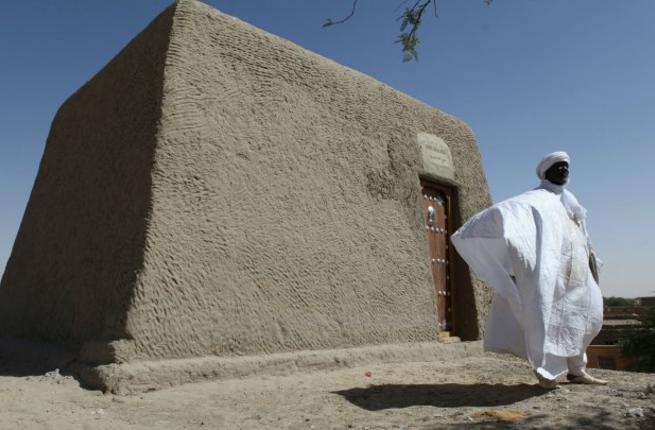-
Tips for becoming a good boxer - November 6, 2020
-
7 expert tips for making your hens night a memorable one - November 6, 2020
-
5 reasons to host your Christmas party on a cruise boat - November 6, 2020
-
What to do when you’re charged with a crime - November 6, 2020
-
Should you get one or multiple dogs? Here’s all you need to know - November 3, 2020
-
A Guide: How to Build Your Very Own Magic Mirror - February 14, 2019
-
Our Top Inspirational Baseball Stars - November 24, 2018
-
Five Tech Tools That Will Help You Turn Your Blog into a Business - November 24, 2018
-
How to Indulge on Vacation without Expanding Your Waist - November 9, 2018
-
5 Strategies for Businesses to Appeal to Today’s Increasingly Mobile-Crazed Customers - November 9, 2018
Islamist militant on trial in Hague over destruction of Timbuktu shrines
A Malian jihadist yesterday pleaded guilty to ordering attacks on historic sites in the Malian desert city of Timbuktu in 2012, in the first case of an Islamist facing global justice for cultural destruction.
Advertisement
Although al-Mahdi is suspected of committing other crimes, legal experts said the case had been narrowly focused to highlight the growing awareness in worldwide justice that cultural destruction is not only a war crime but also an intrinsic part of warfare aimed at destroying an opponent’s history and identity.
“I plead guilty”, Ahmad al-Faqi al-Mahdi told the International Criminal Court after the solo charge of cultural destruction was read to him.
Mahdi is the first person to be tried on charges of destroying religious or cultural heritages sites since the establishment of the court in 2002.
See here, here and here for more.
Mr Mahdi destroyed 14 of the 16 mausoleums in the ancient city of Timbuktu, regarding them as idolatrous.
Human rights activists have also welcomed the case, but criticized prosecutors for failing to file more charges against Al Mahdi.
He is accused of “intentionally directing attacks” against nine of Timbuktu’s famous mausoleums as well as the Sidi Yahia mosque between June 30 and July 11, 2012.
A screengrab of video footage showing militants destroying one of the mausoleums in Timbuktu in 2012.
He already had connections in the jihadist world, rubbing shoulders with the man who would become spokesman for Ansar Dine in Timbuktu, Sanda Ould Bouamama, and through his marriage to the niece of Houka Houka Ag Alfousseyni, an Islamic judge.
His defence lawyer Mohamed Aouini told an earlier hearing that al Mahdi is “a Muslim who believes in justice”, adding: “He wants to be truthful to himself and he wants to admit the acts that he has committed”.
Meanwhile, UN Secretary-General Ban Ki-moon welcomed the landmark case and commended the Court for bringing the significant issue to the forefront of efforts to ensure global justice and accountability, his spokesperson said in a statement.
The judges recognised this, but also warned Mahdi that they were not necessarily bound by the deal and he faced a maximum term of 20 years.
Advertisement
Ahmad al Faqi al Mahdi, aged around 40, said he was “really sorry” for his actions and asked to be forgiven, the BBC reported. Other ICC trials have taken years to complete. The court found that the attacks were not justified for military reasons, but that they had been meant to break the people’s morale.





























